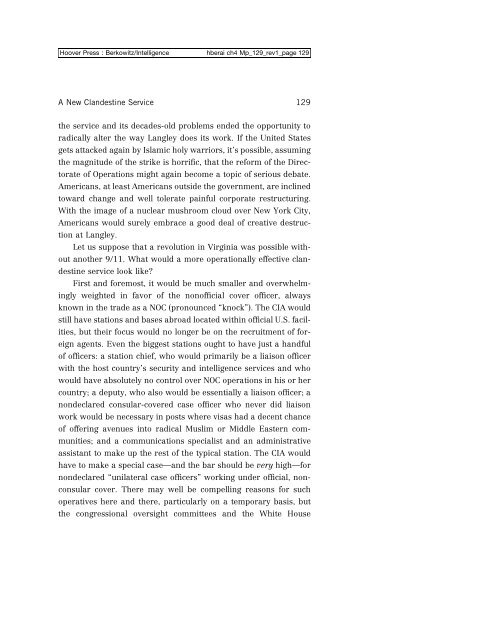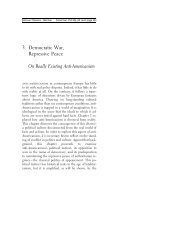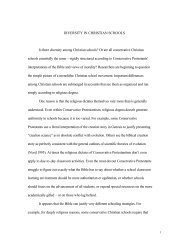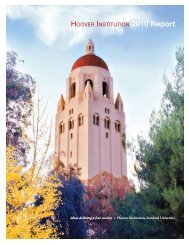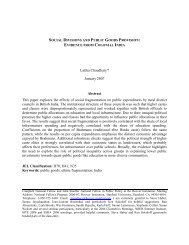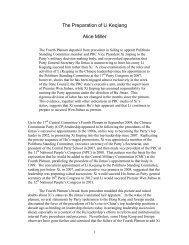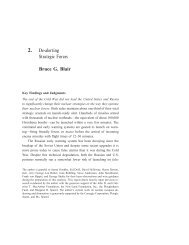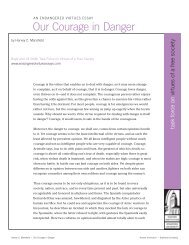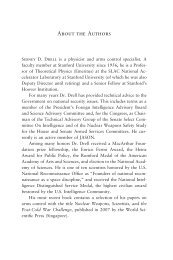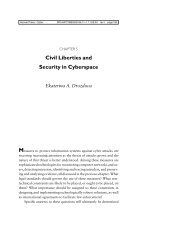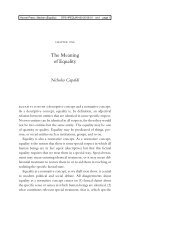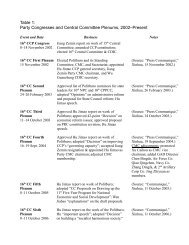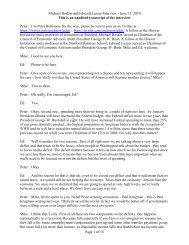A New Clandestine Service: The Case for ... - Hoover Institution
A New Clandestine Service: The Case for ... - Hoover Institution
A New Clandestine Service: The Case for ... - Hoover Institution
Create successful ePaper yourself
Turn your PDF publications into a flip-book with our unique Google optimized e-Paper software.
<strong>Hoover</strong> Press : Berkowitz/Intelligence hberai ch4 Mp_129_rev1_page 129<br />
A <strong>New</strong> <strong>Clandestine</strong> <strong>Service</strong><br />
129<br />
the service and its decades-old problems ended the opportunity to<br />
radically alter the way Langley does its work. If the United States<br />
gets attacked again by Islamic holy warriors, it’s possible, assuming<br />
the magnitude of the strike is horrific, that the re<strong>for</strong>m of the Directorate<br />
of Operations might again become a topic of serious debate.<br />
Americans, at least Americans outside the government, are inclined<br />
toward change and well tolerate painful corporate restructuring.<br />
With the image of a nuclear mushroom cloud over <strong>New</strong> York City,<br />
Americans would surely embrace a good deal of creative destruction<br />
at Langley.<br />
Let us suppose that a revolution in Virginia was possible without<br />
another 9/11. What would a more operationally effective clandestine<br />
service look like?<br />
First and <strong>for</strong>emost, it would be much smaller and overwhelmingly<br />
weighted in favor of the nonofficial cover officer, always<br />
known in the trade as a NOC (pronounced “knock”). <strong>The</strong> CIA would<br />
still have stations and bases abroad located within official U.S. facilities,<br />
but their focus would no longer be on the recruitment of <strong>for</strong>eign<br />
agents. Even the biggest stations ought to have just a handful<br />
of officers: a station chief, who would primarily be a liaison officer<br />
with the host country’s security and intelligence services and who<br />
would have absolutely no control over NOC operations in his or her<br />
country; a deputy, who also would be essentially a liaison officer; a<br />
nondeclared consular-covered case officer who never did liaison<br />
work would be necessary in posts where visas had a decent chance<br />
of offering avenues into radical Muslim or Middle Eastern communities;<br />
and a communications specialist and an administrative<br />
assistant to make up the rest of the typical station. <strong>The</strong> CIA would<br />
have to make a special case—and the bar should be very high—<strong>for</strong><br />
nondeclared “unilateral case officers” working under official, nonconsular<br />
cover. <strong>The</strong>re may well be compelling reasons <strong>for</strong> such<br />
operatives here and there, particularly on a temporary basis, but<br />
the congressional oversight committees and the White House


